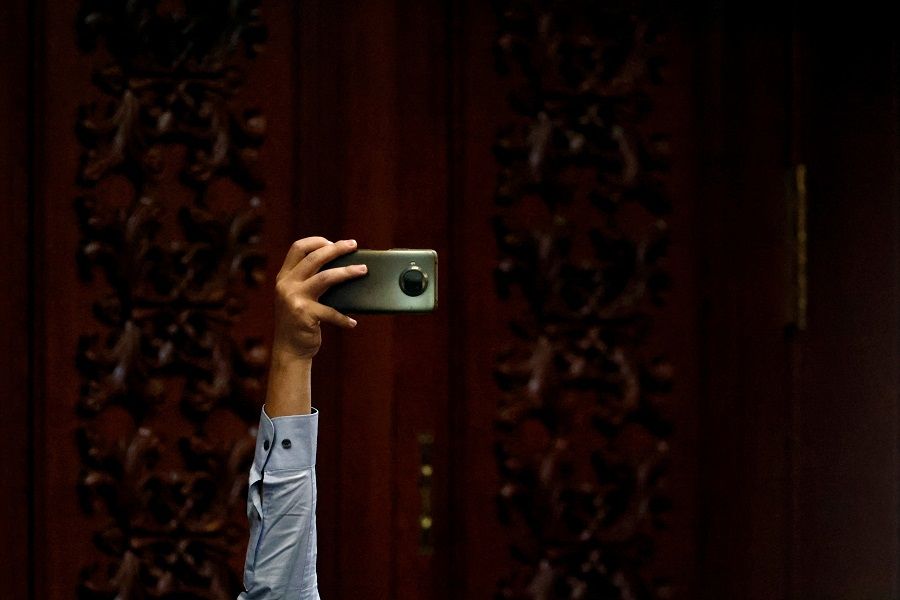China's growing digital economy does not guarantee a 'digital civilisation'

At the Internet Entrepreneurs Forum held at the World Internet Conference Wuzhen Summit last month, the phrase "digital civilisation" was often mentioned.
There is no clear definition of a digital civilisation. But as with agrarian and industrial civilisations, a digital civilisation can be understood as one led by a digital economy built on digitisation and informatisation, whose workings are seen through the use of digitisation to boost the economy and create more social wealth. In a digital civilisation, digitisation is used to manage and run society and the agricultural, industrial and service sectors.
Incidentally, a white paper on the global digital economy was published by the China Academy of Information and Communications Technology in August 2021. It states that China's digital economy grew to 39.2 trillion RMB (about US$6.07 trillion) in 2020, an increase of 9.7% year-on-year and accounting for 38.6% of the country's total GDP. These statistics affirm the digital economy's role as a key driver of China's economic growth.
Conditions for building a digital civilisation
Building a digital civilisation on the back of the digital economy seems like a matter of course, just like how the agrarian and industrial civilisations were each built on the agricultural economy and the industrial economy. It also adheres to an ancient Chinese proverb that says "people observe etiquette and know honour and shame after they are well-fed and clothed", which implies that when the digital economy takes off, the conditions are ripe for digital civilisation.
In the absence of cooperative social intelligence and social will, even the most advanced technology cannot guarantee social progress...

However, building a civilisation - an advanced state of social and cultural development - is a mammoth task involving people's qualities, public ethics, standards of living, levels of technology, etiquette standards, religious thinking, culture and customs, and the public's scientific literacy.
While technology can advance a civilisation, it is a double-edged sword because it may also hinder said civilisation's development or return it to a less developed state. This was already pointed out in 1934 by American historian Lewis Mumford in his book Technics and Civilization.
The Industrial Revolution created an industrial civilisation, but Mumford argued that people often simplistically think that mechanical progress naturally leads to the advancement of culture and civilisation, but machines alone can hardly complete such a mission. In the absence of cooperative social intelligence and social will, even the most advanced technology cannot guarantee social progress, just like a light bulb cannot guarantee a monkey anything.
... even within countries and regions where digital rules are sound and relatively reasonable, the negative effects of digital technologies are already quite pronounced.
Technology for good or evil
Mumford only covered one aspect of the contradiction between technology and civilisation - many situations point to the fact that even if a digital civilisation is built on the foundation of digital technology and economy, the "flip side" and other aspects of this civilisation may still cause harm to humans and hinder the development of civilisation instead. Furthermore, digital civilisation is by far humankind's most powerful weapon. If not properly used, it is bound to cause greater harm to humanity and society.
Putting aside imbalances in the development of the global digital landscape due to the digital divide, even within countries and regions where digital rules are sound and relatively reasonable, the negative effects of digital technologies are already quite pronounced.
For example, there have been frequent occurrences of infringements of privacy and intellectual property, as well as cybercrime including wiretapping, cyber attacks and cyber terrorism, or even digital surveillance of citizens in extreme cases.
In fact, these situations are not "civilised" at all - ultimately, the development of digital technology and economy does not necessarily lead to the establishment of a digital civilisation that benefits humankind.

Because of this, the 193 member states of the United Nations Educational, Scientific and Cultural Organization (UNESCO) adopted the first Recommendation on the Ethics of Artificial Intelligence on 24 November 2021.
According to the document, while it is important to enhance the advantages of AI, it is also necessary to reduce its potential risks. Thus, the document explicitly prohibits the use of AI systems for "social scoring and mass surveillance", because these technologies are "very invasive", "infringe on human rights and fundamental freedoms", and "are used in a broad way".
Abuse of facial recognition and human tracking systems
The consequences of using digital data for social credit and large-scale monitoring have long been demonstrated. A classic example happened in July 2018, when Amazon's Rekognition facial recognition system was used in a trial for the American Civil Liberties Union of Northern California. Photographs of Congress members were used in recognition trials, only for the system to incorrectly identify 28 members as criminals. The false matches were disproportionately of people of colour, which was seen as racism in AI.
However, another more worrisome problem with digital technology is the use of information and intelligence for long-term human tracking with the advent and spread of Covid-19. To monitor and control the spread of Covid-19, many countries have used big data AI software such as health codes and travel codes. Such software that involves individual privacy has become a huge worry.
... such software could be used by those in power or by governments for social scoring or mass surveillance, because they have access to everyone's private information...

As noted in the UN's Recommendation on the Ethics of Artificial Intelligence, such software could be used by those in power or by governments for social scoring or mass surveillance, because they have access to everyone's private information, and can monitor what people do in real time, which would help the authorities control the people.
Some countries are implementing the recommendations in the UN document, such as Thailand's deputy government spokesperson Rachada Dhnadirek announcing on 1 October 2022 that the Department of Disease Control under the Public Health Ministry had discontinued the Covid-19 tracing app Thai Chana, and all information in the system would be destroyed.
Greater freedom or shackles
However, some countries are going in the opposite direction. China announced in November 2022 that every resident will have a comprehensive digital health code by 2025. This is instilling fear in those who have been under quarantine and lockdown, as it means that even after the pandemic is over, they may continue to be put under digital fetters.
The Chinese authorities have clarified that the new digital health code will be different from the one used during the pandemic - the current code is mainly for Covid-19 control and shows vaccinations and test information, while the future version will be used for healthcare services, including identification, payment and service functions, and is more for healthcare information such as residents' digital health records and history - but people are still worried.
... there is a need to establish a set of practices to limit and regulate digital technologies, based on a consensus of ethics accepted by all.

As these two types of software that rely on big data and AI are alike in form and substance, it means that people would be monitored even if there was no pandemic. In June 2022, some people in Henan and its neighbouring provinces woke up to find that their health codes had turned red, and Covid-19 control workers quickly showed up to get them to quarantine. But many people found out later that their health codes were red not because they were infected or close contacts, but because they were defending their rights as bank depositors against big institutions. Many of these anxious depositors had travelled all the way to the provincial capital Zhengzhou to protest as they were unable to withdraw their money from debt-ridden rural banks. This is a classic example of how data technology can become a tool to maintain stability.
Evidently, the existence of digital technology and a digital economy does not build a digital civilisation. Rather, there is a need to establish a set of practices to limit and regulate digital technologies, based on a consensus of ethics accepted by all. Only then can we build a true digital civilisation that will benefit people instead of harming them.
